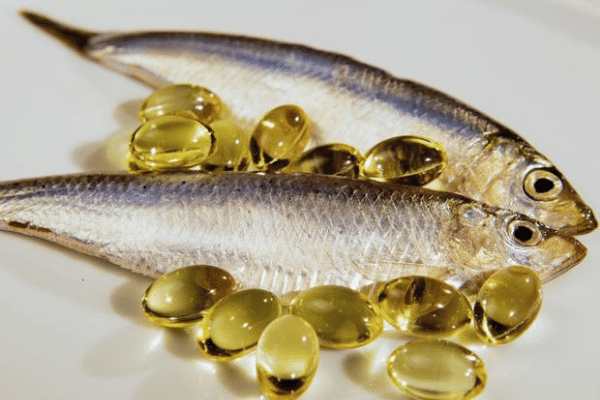‘Hair fall’ is a nightmare for most people today. Among our daily life hustles, stress and pollution are the significant factors affecting our hair. Irrespective of age, all of us long for good and healthy hair. Using fish oil can be a solution to your hair fall problem.
Fish oil is a commonly consumed supplement that we include in our diets. It is rich in omega 3s fatty acids and a handful of other nutrients. It is assumed to promote hair growth, prevent hair loss and keep your hair healthy.
For gaining more knowledge about fish oil and its benefits for hair, keep reading!
Let’s start with,
What is fish oil?

Are you wondering the secret behind the long and natural hair of Bengalis? Yes, you answered it correctly; their seafood-rich diet is the secret.
As the name suggests, fish oil is a dietary supplement derived from fish. It is extracted from fish tissue and sometimes even the liver. Omega 3s is the crucial element of fish oil that can do miracles. Omega-3s is a polyunsaturated fatty acid that contains different DHA portions ( docosahexaenoic acid) and EPA( eicosapentaenoic acid).
Our body does not produce Omega 3s fatty acids, so we need to supply them from outside, mainly as a dietary supplement.
Fish oil comes from oily fishes like tuna, salmon, mackerel, and herring. You don’t need to worry as fish oil is also available in capsules.
Extraction of fish oil

Fish oil extraction involves different extraction processes derived from fatty fish tissues like salmon, tuna, mackerel.
The therapeutic use of fish oil and its application in cosmetics lead to its increased market.
Wet pressing is the most common method for the extraction of fish oil. It includes four different stages- cooking, pressing, decantation, and centrifugation.
Other extraction methods involve using supercritical fluids or enzymes utilizing fish silage.
Now let’s talk about the benefits of fish oil for our hair.
Benefits of fish oil
1. Hair growth
Your hairs grow in four phases: anagen, catagen, telogen and exogen. Anagen is the phase where the hair grows. Fish oil essentially causes the hair to enter its growth phase and stay there for a more extended period. It thereby promotes hair shaft growth.
2. Reduction in hair loss
The telogen phase is the one where your hair falls. Fish oil is assumed to reduce this phase to prevent hair loss and increase the hair density.
The DHA present in omega-3s reduces atopic dermatitis and oxidative stress. So fish oil is also theorized to prevent hair loss by oxidative stress.
3. Improvement of scalp health
The antibacterial property of fish oil prevents bacterial invasion in your scalp. It blesses you with a dandruff-free scalp. It prevents your sculpt from being dry and flaky by maintaining the oil balance. It improves hair by keeping your scalp clean. Conditions like dermatitis and skin ageing are also staved off.
Apart from hair benefits, fish oil is also a boon to your skin and health. It reduces inflammation in the skin, delays skin ageing, lowers blood pressure, reduces liver fats, and last but not least, keeps your heart healthy.
Here we have covered detailed article on benefits of fish oil.
Precautions and shortcomings of using fish oil
Fish oil is considered safe, but overconsumption can lead to a condition called mercury contamination.
One should choose fish oil reputed brands to prevent such conditions.
Mild side effects of oil supplements are-
- Headache
- Rashes
- Indigestion
- Bad breath
- Nausea
- Diarrhoea
- Increased consumption of omega 3s can cause a hike in blood sugar levels as they stimulate glucose production in your body.
- The blood clotting mechanism in your body is affected by overeating fish oil supplements.
You should consult your doctor if you have other medical conditions.
The dosage you can take
Consumption or dosage of fish oil may vary from person to person depending on their individual need and the type of diet they follow.
- The American Heart Association states that a minimum of three servings of fatty fish will be good to go.
- ICMR( Indian Council of Medical Research) suggests that 250 to 2 gm per day of EPA and DHA consumption will be enough.
- If your diet doesn’t contain fish consuming fish oil supplements, about 900 mg of DHA or EPA will benefit.
How to use fish oil?
- Fatty fishes like tuna, salmon, lake trout contain fish oil. Including such fish in your daily diet is recommended as one of the ways of taking in omega-3s fatty acids.
Note: keep in mind to check if you are allergic to fish oil.
- Include fish oil supplements in the form of capsules or pills. Take the help of a health professional for guidance about the dosage.
- A blend of olive oil and fish oil can be applied to your hairs and used as a hair mask. It provides nourishment and moisturization to your hair. Due to the foul odour of fish oil, this is not often preferred.
FAQs
1. When is the best time to use fish oil?
Fish oil can be used or consumed during any time of the day. It doesn’t have an immediate effect. Benefits can be observed only after long-term usage.
Dividing the dose of fish oil into two portions, preferably one in the day and one at night can be helpful, thus preventing acid reflux and indigestion.
2. How to choose the best fish oil for yourself?
Things to keep in mind while choosing fish oil –
firstly checking the label accuracy of the brand and secondly the safety ratings.
You May Like to Read
Omega 3 Vs Fish Oil Vs Cod Liver Oil
Benefits Of Omega-9 Fatty Acids
Best Supplements for optimal health
Conclusion
Fish oil benefits for hair still need some further experimentation. With time, few pieces of evidence have been gained that prove the benefits of using fish oil for the healthy growth of your hair.
You can take fish oil supplements in the form of capsules in case you are not willing to include that in your diet.
But as we know,’ too many cooks spoil the broth’, overconsumption of fish oil can be dangerous.
Consider consulting a health instructor before deciding the dosage you need.



